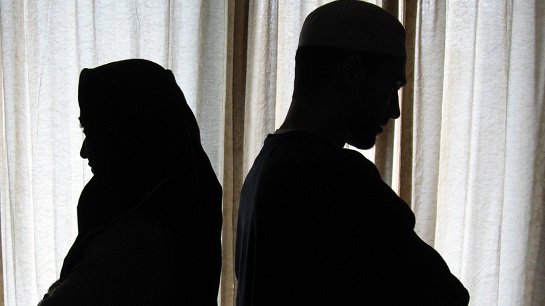Answered by Shaykh Yūsuf Badāt
Question:
I am married to someone who does not pray or fast and I have tried every way possible to guide him and have others guide him. Can I seek divorce on these grounds? I am afraid his lack of Imān and practicing Islam affects our children. Can a woman seek divorce from a non-practising Muslim man?
Answer:
Thank you for your question. We pray Allāh bring the best outcome for you in your situation.
The purpose of a marriage is to have perpetual love and ongoing understanding. Marriage is established to be a means of tranquility and peace. Almighty Allāh states,
“And it is among His signs that He has created for you wives from among yourselves, so that you may find tranquility in them, and He has created love and kindness between you. Surely in this there are signs for a people who reflect.” (Qur’ān 30:21)
That being said, it should be understood that it is natural for married couples to have disagreements, to be upset at each other for certain matters and also fluctuate in romance, at times. In general, if one’s married life is relatively decent, with no major complications, one should not seek divorce. It should be noted that even the Prophet Muḥammad (peace and blessings upon him) and the noble Companions (may Allāh be pleased with them) had issues in their marriages.
However, every marriage may not work out. This is why Allāh and His Messenger (peace and blessings upon him) have addressed the matters of separation, divorce and custody. The Islamic law does provide the right to separate and seek divorce when life becomes extremely difficult due to irreconcilable differences. However, before one takes the major step of divorce, one should seek out help, through counselling, mediation and family therapy. If all avenues are exhausted, and the problems persist, there is no objection in seeking a divorce.
Some Islamic grounds for seeking divorce are mentioned below:
- The wife dislikes her husband’s bad character and habits to the extent that living with him is intolerable. Getting along with the husband would be impossible.
- The wife dislikes the religious practice of her husband due to him being an open sinner and or transgressor. For example the husband abandons mandatory religious practices, engages in illegal drugs, infidelity or criminal activity and or instructs the wife to commit sin. Living with such a husband would negatively affect one’s own religious practice.
- The wife is physically or emotionally abused by the husband.
- The husband does not fulfil mandatory rights of maintenance (basic necessities of food, shelter and clothing) or intercourse.
“If any woman asks her husband for a divorce without a strong reason, the fragrance of the Garden will be forbidden to her.” (Abū Dāwūd)”
The wife of Thābit ibn Qays (may Allāh be pleased with them) came to the Prophet (peace and blessings be upon him) and said, “O Messenger of Allāh, I do not reproach Thābit ibn Qays in respect of character and religion, but I do not want to be guilty of showing anger to him.” (Her intent was that although Thābit was a good man, she was unable to get along with him and thus might not be able to show him the respect of a husband.) The Prophet (peace and blessings be upon him) asked her about what she had received from him [as dowry]. She replied, “A garden.” He asked, “Will you give him back his garden?” “Yes,” she said. The Prophet (peace and blessings upon him) then told Thābit, “Accept the garden and make one declaration of divorce.” (Bukhārī)
In your particular situation, I suggest you make istikhārah, seek some counsel from trusted elders and marriage therapists. See if your husband can address his lack of religious practice. If things are really bad and persist, you may consider the divorce.
In conclusion, I pray that Allāh facilitate what is best for you and your family.
And Allāh Knows Best




